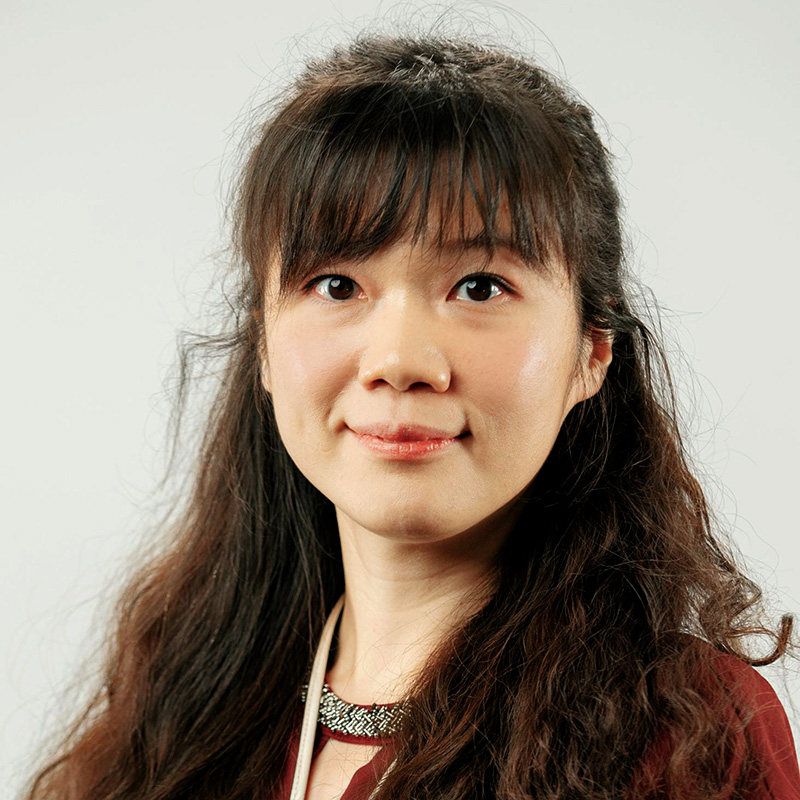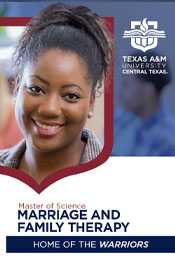Program Overview
The Marriage and Family Therapy (MFT) master’s program is an excellent professional training opportunity providing the educational requirements to apply to become a licensed marriage and family therapist in Texas. Graduates are equipped to bring needed change and relief to distressed families, couples and individuals. Our diverse faculty team seeks to serve students and families in Central Texas.
The program prepares students to effectively serve family systems in a collaborative environment conducive for working within the broader health care system through learning, therapeutic practice and community involvement. Students learn ethical responsibility to ensure professional practices and develop personal and professional growth through intentional self-awareness and self-reflection.
Students participating in our practicums will gain real-world experience serving distressed families in the Central Texas region through The Community Counseling and Family Therapy Center, as well as our practicum site partners. Our program will maintain collaborative relationships with broader healthcare organizations and agencies and will place its students in those settings to develop the critical consciousness and systemic framework necessary to serve area individuals, couples, and families.
Career Opportunities
- Licensed Marriage and Family Therapist in private practice or an agency
- Family Researcher
- Consultant
- Media Personality
Program Application
Fall Admission: July 1st
Spring Admission: November 1st
Summer Admission: April 1st
Program Mission, Values, and Outcomes
Program Mission
The mission of the Marriage and Family Therapy program is to train couple and family therapists to demonstrate clinical excellence through the mastery of the MFT core competencies, the practice of personal knowledge and professional integrity, and compassionate and collaborative service to distressed and/or underserved individuals, couples, and families in the broader Central Texas area.
Program Values
- Critical consciousness necessary to effectively service diverse family systems
- Collaborative environment conducive for working within the broader health care system
- Ethical responsibility to ensure professional practices
- Personal and professional growth through intentional self-awareness and self-reflection
- Community understanding through systemic conceptualization and assessment
- Clinical excellence through understanding and practice effective therapeutic approaches
- Compassion through local, regional, and global service
Program Goals
- Diversity - The Program will train students to evaluate social location as it pertains to diversity and clinical issues.
- Research - The program will provide students with the skills to understand current trends in MFT research.
- Practice, Ethics - The program will train students in the ethical practice of systemic MFT.
- Knowledge - The Program will teach students knowledge of classical and postmodern MFT theories.
Student Learning Outcomes
Students will:
- Assess the influence of their social location and personal experiences on the conceptualization and intervention of cases. (SLO-1)
- Demonstrate knowledge of current trends and research methods in the field of marriage and family therapy. (SLO-2)
- Demonstrate systemic therapeutic techniques in practice. (SLO-3)
- Demonstrate systemic practice consistent with the AAMFT Code of Ethics (SLO-4)
- Demonstrate knowledge and appropriate application of classical and postmodern MFT theories. (SLO-5)
Program Accreditation

The Marriage and Family Therapy Program at Texas A&M University-Central Texas is accredited by the Commission on Accreditation for Marriage and Family Therapy Education (COAMFTE), coa@aamft.org
Program Coordinator
Dr. Hao-Min Chen
Associate Professor
College of Education and Human Development
Room: WH-318J
Email: hmchen@tamuct.edu
View Bio





 See what's possible at A&M-Central Texas: You'll have dedicated admission, financial aid and academic advisors to help you meet your degree goals. Learn more now!
See what's possible at A&M-Central Texas: You'll have dedicated admission, financial aid and academic advisors to help you meet your degree goals. Learn more now!